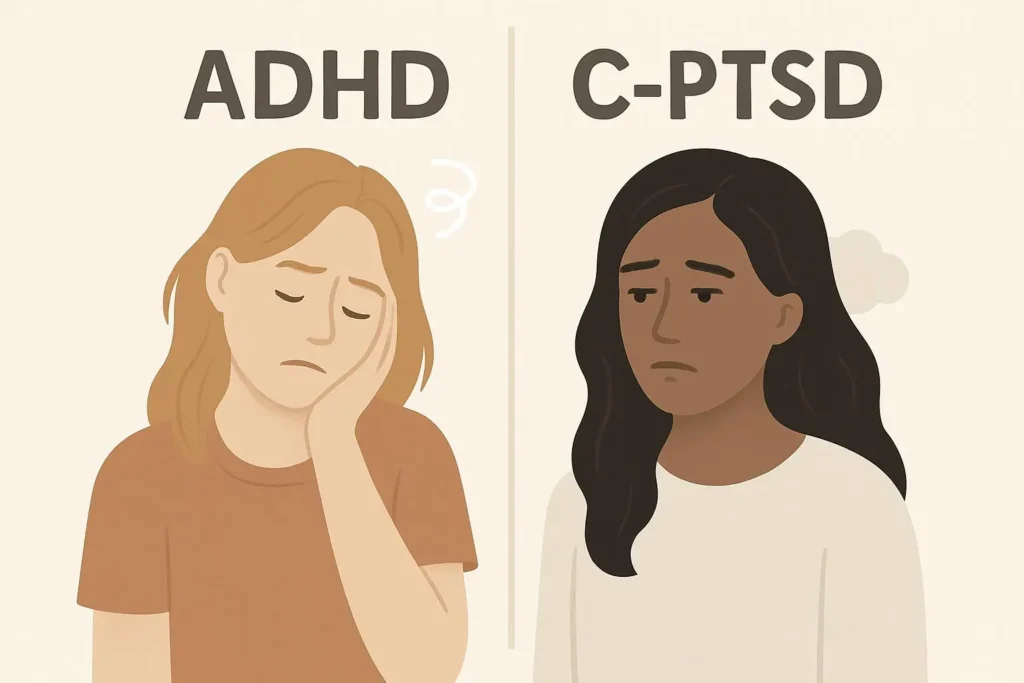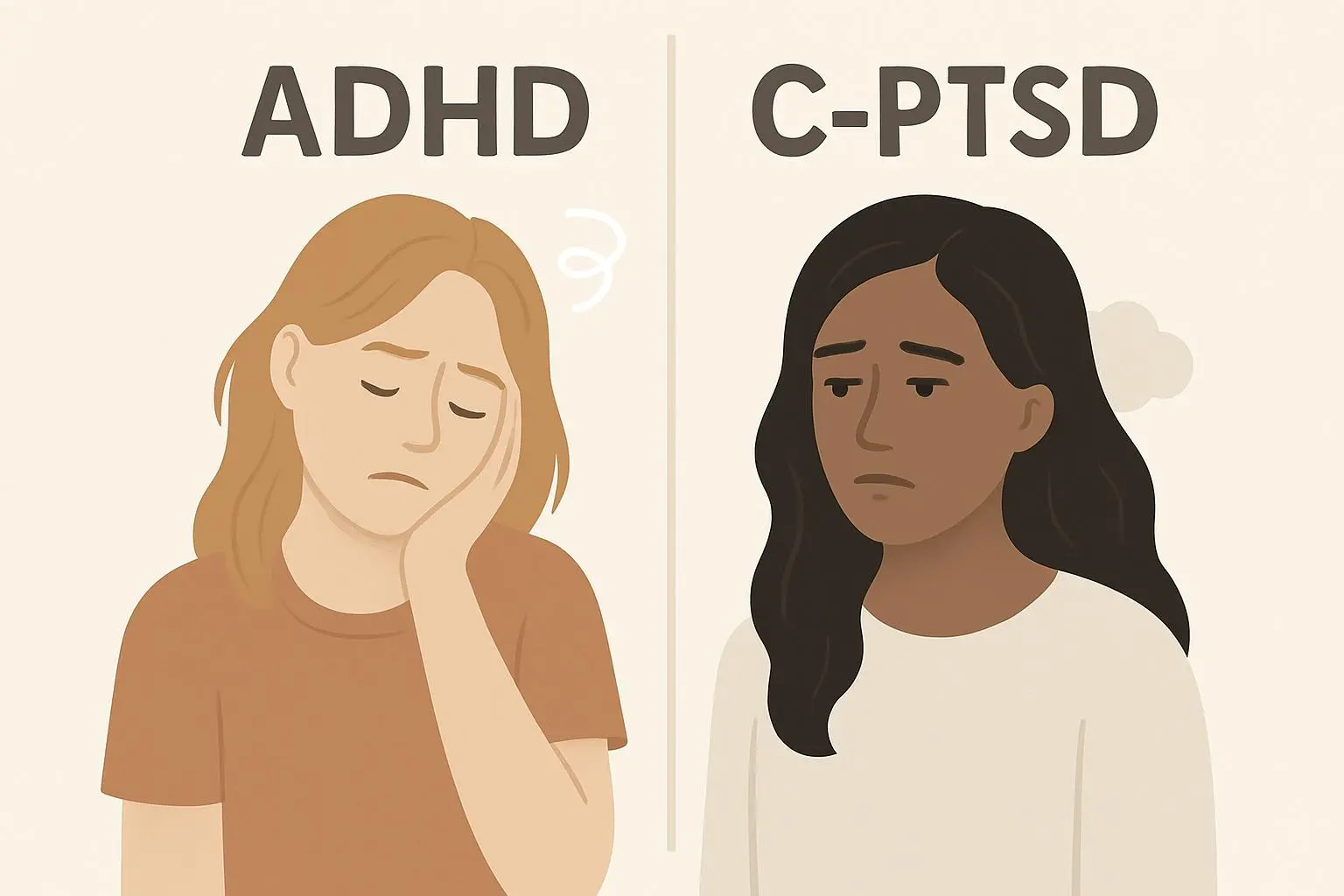

ADHD (Attention-Deficit/Hyperactivity Disorder) and C-PTSD (Complex Post-Traumatic Stress Disorder) are often misunderstood in isolation. As these two conditions intersect, and individuals may experience both simultaneously, there is an importance in understanding their connection.
Attention Deficit Hyperactivity Disorder (ADHD) is a neurodevelopmental condition characterized by symptoms of inattention, hyperactivity, and impulsivity. Individuals with ADHD may struggle with staying focused, organizing tasks, or sitting still, which can significantly impact daily functioning, affecting work productivity, relationships, and self-esteem.
Complex Post-Traumatic Stress Disorder (C-PTSD) is a mental health condition that develops due to prolonged or repeated trauma, often experienced in childhood or toxic relationships. Unlike traditional PTSD, which typically results from a single traumatic event, C-PTSD arises from chronic exposure to trauma, leading to deeper, more pervasive effects on an individual’s mental and emotional health.
ADHD often goes undiagnosed, especially in adults, as its symptoms may be mistaken for other conditions or attributed to personality traits. It frequently coexists with other mental health issues, such as anxiety or depression, further complicating diagnosis, and making ADHD harder to recognize, resulting in obstacles to treatment and ongoing difficulties in the lives of those impacted.
Recognizing C-PTSD is crucial, particularly in individuals with a history of prolonged trauma. Proper diagnosis and treatment are necessary to help individuals heal, as their experiences often go unnoticed or misunderstood, leading to persistent emotional challenges such as emotional dysregulation, intrusive memories, hypervigilance, and a negative self-perception. Unlike PTSD, which may focus more on flashbacks or triggers related to a specific event, C-PTSD encompasses a broader emotional impact.
ADHD and Complex Post-Traumatic Stress Disorder (C-PTSD) overlap in significant ways, making diagnosis and treatment more challenging. While ADHD is a neurodevelopmental disorder, C-PTSD arises from prolonged or repeated trauma. However, the symptoms of both conditions can manifest similarly, especially in difficulty with attention and focus..
In ADHD, individuals may struggle with managing tasks, relationships, and emotions. Similarly, C-PTSD can cause emotional instability, difficulty concentrating, and heightened impulsivity, often due to chronic stress. Hypervigilance, a key symptom of C-PTSD, can resemble the restlessness or impulsive behavior seen in ADHD, leading to confusion between the two.
Both conditions also impact self-esteem, as individuals may struggle with feelings of inadequacy and frustration. ADHD’s tendency to disrupt personal and professional aspects of life can mirror the challenges faced by those with C-PTSD, who may have difficulty trusting others or maintaining stable relationships.
Addressing both ADHD and C-PTSD is crucial for effective treatment. Both conditions significantly impact an individual’s mental, emotional, and social functioning. If left unaddressed, the symptoms of ADHD and C-PTSD can exacerbate one another. ADHD’s impulsivity and inattention can worsen the emotional dysregulation and hypervigilance associated with C-PTSD, while trauma-related symptoms can make ADHD symptoms more difficult to manage.
Addressing both ADHD and C-PTSD simultaneously allows for a more comprehensive approach to treatment, including therapy, medication, and coping strategies tailored to the unique needs of the individual. This holistic approach ensures that both the neurodevelopmental and trauma-related aspects are managed, helping individuals lead healthier, more stable lives. Professional treatment, including therapy and medication, like at Behr Psychology, helps individuals manage symptoms, build coping strategies, and improve emotional regulation.
By addressing ADHD and C-PTSD with the right care, individuals can heal from past trauma, enhance their functioning, and develop a better understanding of their needs, leading to a more balanced and fulfilling life.